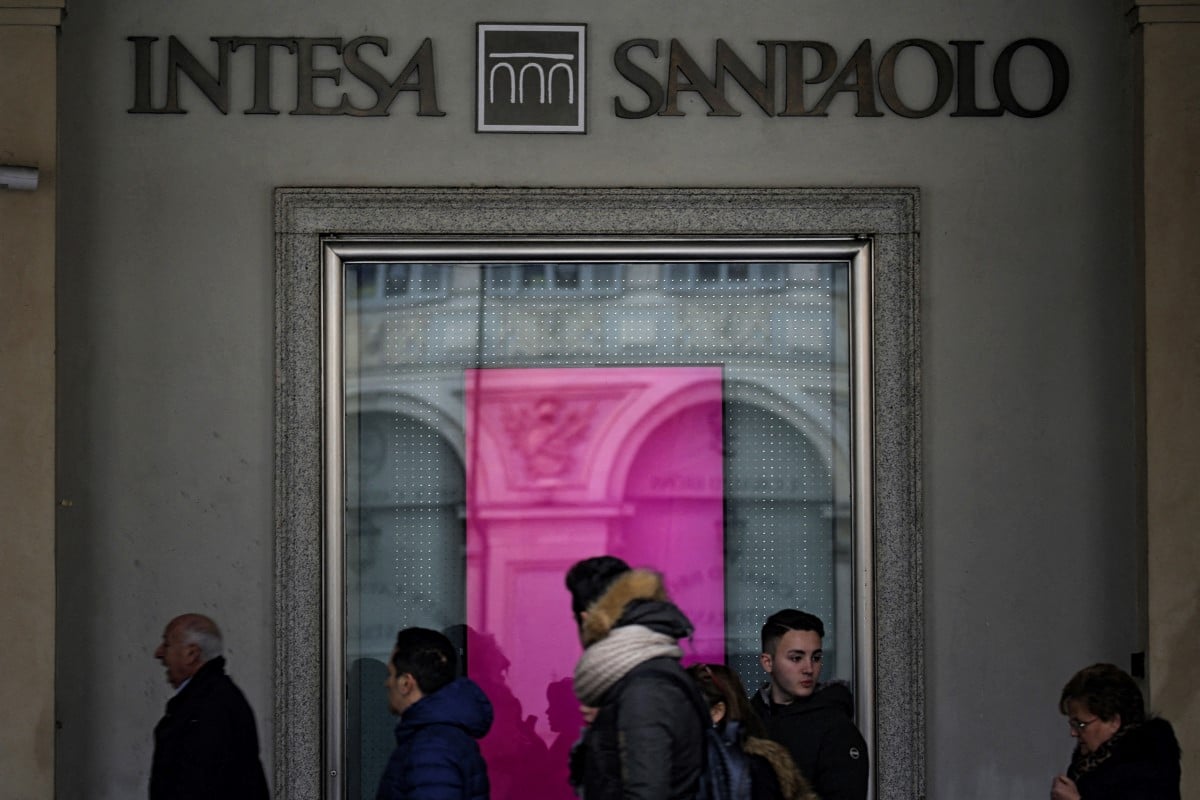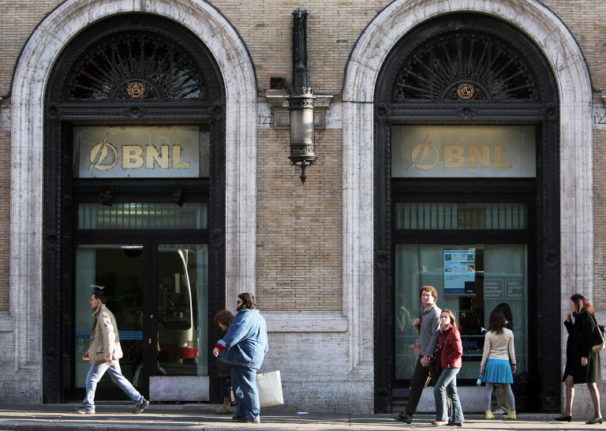If you’re planning on moving to Italy, opening a bank account will be one of the very first things you’ll have to do in the country.
Overseas accounts (especially those from outside the eurozone) are unlikely to cut it for everyday tasks like paying bills and taxes, receiving an Italian salary and taking out insurance as many Italian authorities require an account with an Italian IBAN number for these purposes.
Italy has a large number of banks to choose from, ranging from traditional Italian institutions to international banks to a host of online-only operators that have grown in popularity in recent years.
But Italian-only online information, confusing paperwork and a swarm of different offers can make it hard to find the right option, which is why we asked readers of The Local to share some of their best insider tips in a recent survey.
Traditional v online banking
If you’re looking to open an account in Italy, one of the very first decisions you’ll be faced with will be whether to opt for a traditional institution or a digital banking platform.
Overall, around four in ten respondents indicated an online banking platform as the best option for foreigners in the country, with many pointing to low account fees, advantageous currency exchange rates and a far greater degree of flexibility compared to traditional institutions.
READ ALSO: Which documents do I need to open an Italian bank account?
The majority of respondents however selected a traditional Italian bank as the best option, citing greater levels of trust in traditional institutions, the advantage of dealing with people face to face and, in some cases, the availability of specific services and information for foreign nationals.
Traditional banks
Italy’s biggest private bank, Intesa Sanpaolo, was recommended by multiple readers as the best option for foreign nationals in the country.

Iain Gosling, a UK national living in Pisa, Tuscany, highlighted the quality of their online services, saying: “The app is easy to use and it translates into English automatically. Online banking is easy. We maintain bank accounts in the UK and send funds to ISP, no problem.”
Another British national living in Pisa focused on the advantages of dealing with Italy’s largest bank, saying that “a lot of operations are done through ISP so the transaction fee is low” and the large number of branches across Italy makes it easy to “open an account quickly in person.”
Laura, a US-Italian citizen living in Ascoli Piceno, Marche, praised Intesa Sanpaolo for their customer service, saying staff were “patient and understanding” following a bad experience with another bank.
READ ALSO: What you need to know about opening a bank account in Italy
Besides Intesa Sanpaolo, UniCredit was also mentioned on multiple occasions within the survey, though opinions on Italy’s second-largest bank were mixed.
Stewart, an Australian national living in Umbria, said they “never had any problem paying bills or making transfers” even when out of the country, and the bank has “a pretty good website, including an English-language (sort of) option”.
But other readers had rather different experiences. Laura, from Ascoli Piceno, said her experience with UniCredit was “a nightmare” as “they couldn’t open the account correctly” and trying to solve the issue was “humiliating and impossible”.
Cindy in Orte, Lazio, mentioned that UniCredit “arbitrarily raised checking account rates for foreigners who are not residents from 20€ annual to 120€ annual”, whilst another reader reported that “it took someone I know three months to open an account”.
Finally, two readers recommended BancoPosta – a branch of Italy’s Post Office offering basic financial services – based on low fees, presence in all major Italian towns, and easy sign-up procedures.
Online banking and transfer platforms
Wise (formerly TransferWise) was by far the most highly recommended digital platform within our survey.
A British reader in Tuscany hailed it for its “speedy transfers, good exchange rates, and prompt problem resolution”, highlighting the contrast with “slow, expensive and paper intensive” traditional banks.

Jenny Lantschner, a British-Italian national in Lucca, also pointed out Wise services’ speed, saying that it’s “very easy to use on a smartphone and will send funds within minutes”.
Besides Wise, several readers recommended Italian online bank Fineco, which they praised for easy account-opening procedures, efficient online operations and low fees.
Lithuania-based Revolut was also recommended by some readers on the basis of “low cost, convenience, and near spot-market rates for currency exchange”, though others mentioned having problems with money transfers.
For instance, Bob, an American national in Siracusa, Sicily said that “English, American, and Italian banks all refused to fund” his account.
Finally, Steve in Lombardy advised against opening accounts with Germany-based N26 as they “have been closing accounts in Italy and not giving back the money to customers”.
Though N26 is an active digital bank in Italy, it has been operating in a limited capacity for nearly two years following on-site inspections in late 2021 that revealed shortcomings in terms of security legislation and weaknesses in anti-laundering measures.
Readers of The Local have recently reported having their accounts shut and being locked out of their funds for no apparent reason.




 Please whitelist us to continue reading.
Please whitelist us to continue reading.
I would be interested if any American readers have been able to establish accounts with Italian banks. We have not been successful, largely because the banks don’t want to have to do all the reporting that US law calls for. We did manage to sset up an account with the Post Office, but only with the help of a good friend who is a native.
Watch out with renting cars using online banks. I recently saw a couple walk away from a rental desk because the agency wouldn’t accept Wise credit cards. It doesn’t make sense to me, but they explained that the reason was because of an online bank.